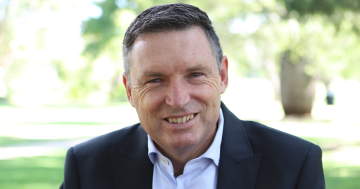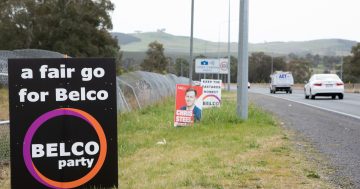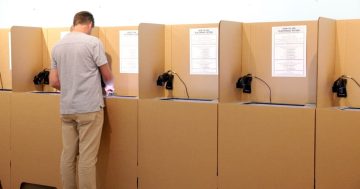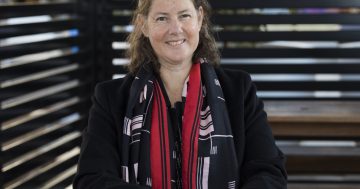
The political landscape of the ACT is changing at lightning speed. Here are some of the most significant changes:
1) From 2016, the size of the Legislative Assembly will swell from 17 members to 25 members.
2) The ACT will be split-up from three electorates (two with five seats and one with seven seats) to five electorates (all with five seats).
3) The $10,000 limit on donations to political parties has been abolished. This means that an individual or entity can donate $1 million, $2 million, or whatever they like.
4) Individual candidates can only spend a maximum of $40,000 on their campaign, which is a drastic decrease from $60,000. This means that if you are an independent candidate you are legally restricted to spending $40,000 in your electorate while the major parties will spend $200,000 in their electorates.
5) Public funding per vote has increased from $2 per vote to $8 per vote. This means that the major parties will benefit to the tune of somewhere from $400,000 to $1.6 million.
All of these changes have been supported by the major parties, and not one of these changes can be logically considered as an advance for a fairer democratic representation of the people of the ACT.
Surely an increase in public funding per vote could only be justified if there was a decrease in private donations. But the major parties have chosen to increase both. Why? To solidify their power.
By sectionalising the ACT into five, five-seat electorates, the major parties have abolished one seven-seat electorate, which will increase the quota to win a seat from 12.5 per cent to 16.7 per cent. Surely if expanding the Legislative Assembly from 17 to 25 seats was inspired by inclusive democratic principles and a trust in the people of the ACT, the major parties wouldn’t have moved to decrease the chances of smaller parties and independents from gaining a seat.
There is no reason why the ACT could not have six, seven, eight, or nine-seat electorates other than it frightens the major parties.
A more insidious development in the changing political landscape could be this: that the increase of public funding could encourage independents and small parties with no real political convictions to join the 2016 race to simply make a buck. For instance, a vote of 3,000 would translate into $24,000 instead of $6,000 of public funds into the hands of individuals.
The ACT can expect a large number of small parties to join the race for this reason, and this reason alone. That money, and not humanitarian conviction, could be the incentive to partake in Australian democracy is to impoverish the very modern ideal of democracy.
In the last federal election, nearly a third of Australians voted for non-major party candidates yet out of the 226 seats of the Upper House and Lower House combined, there are only 23 cross-benches (including the Greens). This represents about one-tenth of the collective will of the Australian people instead of a third.
Rather than echo the disparity between the will of a citizenry and the result of an election, the ACT should be an exemplar of democratic principles. We have to ask ourselves: do want a mature democracy like those of Europe or Japan, or do want an impoverished democracy like the gridlock and corruption of America?
When the two Goliaths of political power oppose for the sake of opposition only, it can be quite frustrating. Yet when the two major parties collude to strengthen their grips on power, it disempowers a citizenry to a frightening reality. And that reality is a world where Goliaths reign free with their armour and shields while the Davids are robbed of their staffs and slings.
Steven Bailey is the first officer and lead candidate of the Australian Sex Party – Canberra.





















